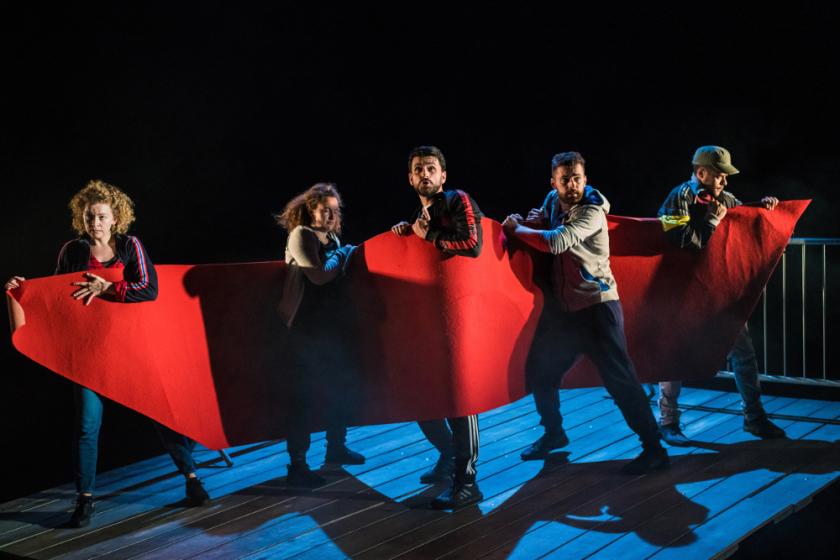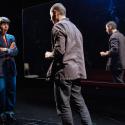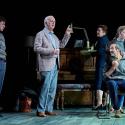Urgent, fast-paced, seemingly never pausing for breath, How Not to Drown is a real-life boy’s own adventure, an appeal for compassion towards refugees, and an interrogation of nationality and identity. That’s quite a mix for a show of 100 minutes. But this bold, confident work, directed with somewhat breathless energy by Neil Bettles for theatre company ThickSkin, pulls it off brilliantly, on a revolving raised platform in Becky Minto’s rugged set. And it’s all the more remarkable because it’s true.
Dritan Kastrati grew up in Kosovo, but his parents became increasingly alarmed as war grew ever closer to their village in the northern mountains. They sent first his elder brother Alfred, then the 11-year-old Dritan, on a perilous journey to the UK, via dodgy mafia-style people smugglers, multi-hour lorry journeys, and overcrowded sea crossings.
How Not to Drown is distilled from hours of interviews between Kastrati and his co-writer Nicola McCartney, and it retains a touching authenticity, almost a rawness of voice, with Dritan very much a bolshy but nonetheless naive kid alone in a confusing system. It strikes a strange note, though, that despite his journey’s evident dangers, he manages something of a charmed existence thanks to a hotline back to scary mafia big boss. Indeed, there’s seldom a sense of serious danger or threat during his long migration – a reflection, perhaps, of his own excitement, though it saps dramatic tension somewhat. Nevertheless, the pace slackens appropriately when the boy finds himself immersed in the British care system, shunted from foster family to foster family, and separated from his brother.
Kastrati is ever present on stage, too, as the primary voice among director Bettles’s ensemble of Ajjaz Awad, Esme Bayley, Daniel Cahill and Reuben Joseph, who pass roles between them, to suitably energetic effect.
If How Not to Drown feels strangely at times like a contemporary adventure story, its closing scenes broaden out into more universal questions as Kastrati returns to his Kosovan home to discover he’s changed, forgotten a lot of his native language, and become used to alien habits and customs. It’s a touchingly bittersweet, thought-provoking close to a ripping yarn very much for our times.
- How Not to Drown at the Traverse Theatre until 25 August
- The Edinburgh International Festival and Fringe continue until Mon 26 August
- Read more theatre reviews on theartsdesk














Add comment